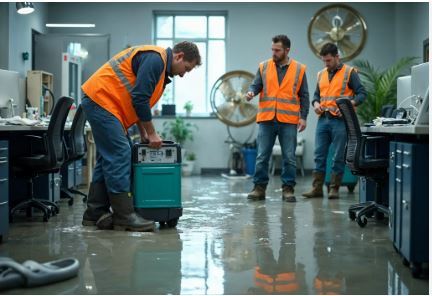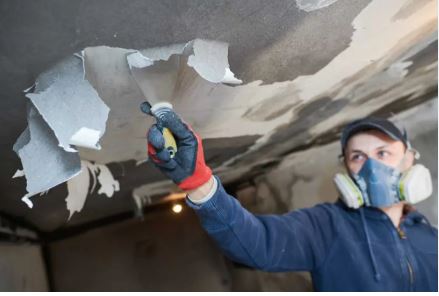5 Critical Reasons Why Restoration Services for the Hospitality Industry Can Save Your Business Millions
Table of Contents
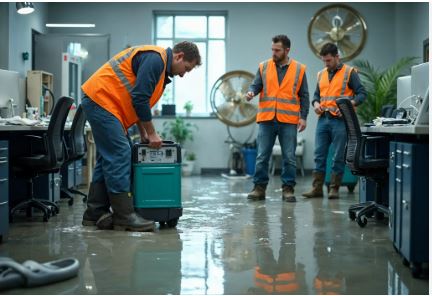

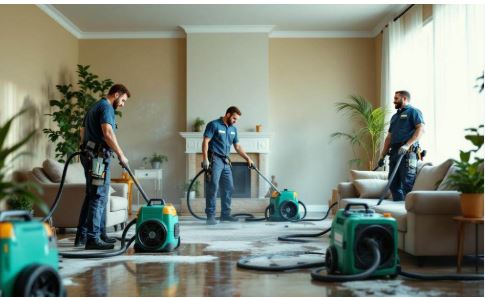
When disaster strikes your hotel, restaurant, or resort, every minute of downtime costs you thousands of dollars in lost revenue, canceled reservations, and damaged reputation. The hospitality industry faces unique challenges that standard restoration companies simply don’t understand – but specialized restoration services for the hospitality industry can be the difference between a minor setback and complete business failure.
Brief Summary
Restoration services for the hospitality industry are specialized emergency response solutions designed to minimize operational disruption when hotels, restaurants, and resorts face water damage, fire damage, mold contamination, or other disasters. These services provide 24/7 emergency response, guest safety prioritization, discrete operations to maintain business continuity, insurance coordination, and comprehensive reconstruction – all tailored to the unique needs of hospitality businesses that cannot afford extended closures.
Why Traditional Restoration Falls Short for Hospitality Businesses


The hospitality industry operates under pressure that most businesses never experience. When a pipe bursts in your hotel at 2 AM, you’re not just dealing with water damage – you’re managing guest safety, room relocations, reputation protection, and revenue preservation all simultaneously.
Standard restoration companies treat hospitality properties like office buildings or warehouses. They don’t understand that a single flooded floor can trigger a cascade of canceled reservations worth hundreds of thousands of dollars. They don’t grasp the complexity of maintaining operations while conducting emergency repairs in guest-occupied spaces.
Restoration services for the hospitality industry recognize these unique challenges. These specialized services understand that your success depends on three critical factors: speed of response, discretion during operations, and maintaining guest satisfaction throughout the restoration process.
The difference becomes clear when you consider that traditional restoration might take 3-5 days to fully mobilize, while hospitality-focused services arrive within 90 minutes with industry-specific protocols already in place.
The Hidden Costs of Hospitality Disasters
Beyond the obvious repair costs, hospitality disasters create a web of financial consequences that can devastate even well-established properties.
Immediate Revenue Loss: Each affected room represents direct lost income. A 200-room hotel losing 50 rooms for two weeks faces potential revenue losses exceeding $400,000, assuming an average daily rate of $150.
Reputation Damage: In the social media age, guest experiences spread instantly. Poor handling of disaster response generates negative reviews that impact bookings for months. Studies show that a single negative review can cost hotels up to 30 potential guests.
Staff Displacement Costs: When portions of your property become uninhabitable, staff scheduling becomes chaotic. Overtime pay, temporary staffing, and productivity losses compound rapidly.
Regulatory Compliance Issues: Health departments, fire marshals, and building inspectors become involved when disasters affect hospitality properties. Non-compliance can extend closure periods significantly.
Insurance Claim Complications: Hospitality properties carry complex insurance policies with business interruption clauses, liability coverage, and guest safety provisions. Improper documentation during restoration can compromise claim settlements.
Professional restoration services for the hospitality industry mitigate these hidden costs through rapid response, proper documentation, regulatory compliance expertise, and guest communication protocols.
Essential Components of Professional Hospitality Restoration Services


Effective hospitality restoration requires a comprehensive approach that addresses both immediate emergency needs and long-term business recovery.
Water and Flood Restoration: Hotels and restaurants face unique water damage challenges. Kitchen floods can contaminate multiple floors through elevator shafts. Guest bathroom overflows create biohazard concerns. Pool equipment failures can damage structural foundations. Specialized restoration services understand these complexities and deploy appropriate containment, extraction, and drying strategies.
Fire Damage Remediation: Restaurant fires often involve grease and create smoke damage throughout connected spaces. Hotel fires trigger evacuation protocols and require coordination with fire departments. Hospitality-focused restoration includes smoke odor elimination techniques specifically designed for guest comfort areas.
Environmental Hazard Remediation: Mold growth in hospitality settings creates immediate health concerns for guests and staff. Asbestos and lead paint issues in older properties require specialized handling. Professional services coordinate with health inspectors and maintain guest safety during remediation.
Storm Damage Response: Texas weather presents unique challenges with sudden storms, flooding, and high winds. Hospitality properties need rapid temporary repairs to maintain operations while comprehensive restoration proceeds.
Each service component requires understanding of hospitality operations, guest safety protocols, and business continuity requirements that general restoration companies lack.
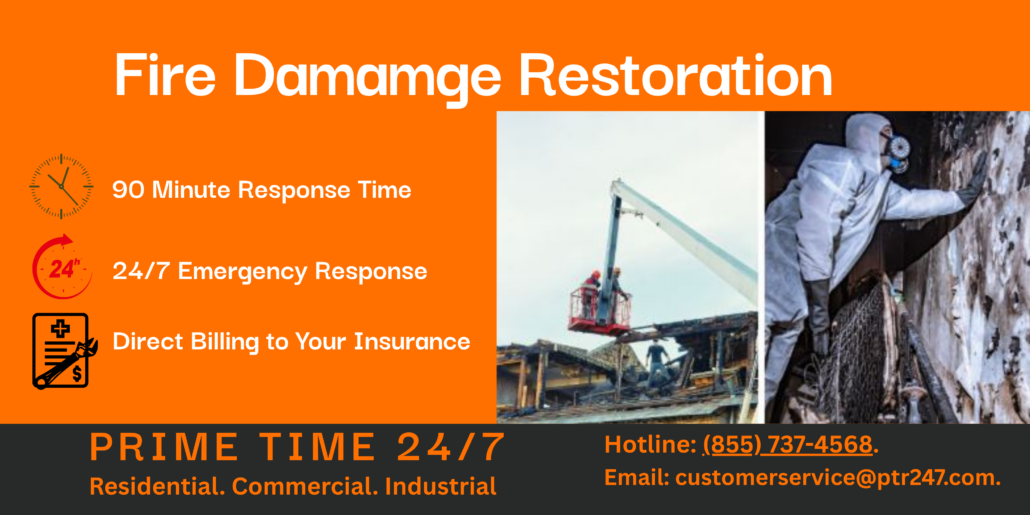
Emergency Response: The 90-Minute Rule That Saves Businesses
In hospitality restoration, response time directly correlates with damage limitation and business survival. The industry standard of 90-minute response exists because hospitality disasters escalate exponentially after the first hour.
The First 90 Minutes Are Critical: Water damage spreads at predictable rates through hotel corridors and restaurant dining areas. Fire damage continues affecting adjacent spaces through heat and smoke transfer. Each minute of delay increases repair costs and extends closure periods.
24/7 Availability Requirement: Hospitality disasters don’t follow business hours. Kitchen equipment failures, plumbing emergencies, and storm damage occur without warning. Professional restoration services for the hospitality industry maintain fully-staffed emergency response teams around the clock.
Rapid Assessment Protocols: Upon arrival, specialized teams immediately assess guest safety, establish containment zones, and begin damage mitigation. They understand hospitality floor plans, guest flow patterns, and critical operational areas.
Communication Systems: Emergency response includes immediate communication with property management, insurance carriers, and regulatory authorities. Hospitality properties require constant updates to manage guest relations and maintain operational control.
Prime Time’s 90-minute response guarantee ensures that San Antonio area hospitality properties receive immediate attention when disasters strike, minimizing both damage and business disruption.
Guest Safety and Business Continuity Strategies
Maintaining operations during restoration requires sophisticated planning and execution that balances guest safety with business needs.
Guest Safety Protocols: All restoration activities must prioritize guest welfare. This includes establishing safe evacuation routes, maintaining air quality in occupied areas, controlling noise during business hours, and ensuring guest privacy during restoration work.
Operational Containment: Professional services create containment zones that isolate damaged areas while maintaining access to functional spaces. This might involve installing temporary barriers, establishing alternative traffic patterns, or relocating essential services.
Service Continuity Planning: Restaurants must maintain food service capabilities even during kitchen restoration. Hotels need functional front desk, housekeeping, and guest service areas. Specialized restoration understands these operational requirements and plans accordingly.
Guest Communication Management: Transparent communication prevents guest dissatisfaction during restoration periods. Professional services work with property management to develop guest notification protocols, alternative accommodation plans, and compensation strategies.
Staff Coordination: Restoration work must coordinate with housekeeping schedules, maintenance routines, and guest services. This requires understanding hospitality staffing patterns and operational workflows.
These strategies ensure that restoration enhances rather than disrupts your property’s reputation for guest service excellence.
Insurance Navigation for Hospitality Properties
As highlighted in the Prime Time Pro Tips episode with Heath Pipes, understanding the complexities of insurance including deductibles and claim responsibilities is critical for hospitality properties, which often face intricate policy structures requiring expert navigation during claims.
Commercial Property Coverage: Hotels and restaurants typically carry substantial property insurance, but coverage varies significantly based on policy terms, exclusions, and business interruption provisions. Professional restoration services understand these nuances and document damage appropriately.
Business Interruption Claims: These claims can be worth more than property damage repairs for hospitality businesses. Proper documentation requires understanding of historical occupancy rates, seasonal variations, and revenue projections.
Liability Considerations: Guest injuries or illnesses related to property damage can create significant liability exposure. Restoration services must coordinate with liability insurers and maintain detailed safety documentation.
Guest Displacement Coverage: Some policies cover guest relocation costs when rooms become uninhabitable. Understanding these provisions helps minimize out-of-pocket expenses during restoration.
Documentation Requirements: Insurance companies require extensive documentation including photos, moisture readings, air quality tests, and repair estimates. Hospitality-focused restoration services understand these requirements and maintain compliance throughout the process.
Prime Time provides comprehensive insurance assistance, working directly with carriers to streamline claim processing and maximize coverage benefits for hospitality clients.
Reconstruction and Renovation Excellence
Hospitality restoration often involves significant reconstruction that must meet rigorous industry standards while maintaining aesthetic appeal.
Design Integration: Restoration work must integrate seamlessly with existing property design themes. Guest areas require particular attention to décor, lighting, and ambiance consistency. Professional services work with interior designers and architects who understand hospitality aesthetics.
Code Compliance: Hospitality properties must meet strict building codes, fire safety requirements, and ADA compliance standards. Renovation work often triggers requirement updates that general contractors might overlook.
Quality Standards: Guest-facing areas require premium materials and finishes that withstand heavy use while maintaining appearance. Restaurant areas need commercial-grade surfaces that meet health department requirements.
Timeline Management: Reconstruction schedules must coordinate with business operations, seasonal demand patterns, and special events. Hospitality-focused contractors understand these timing considerations and plan accordingly.
Vendor Coordination: Complex restoration projects involve multiple specialty contractors including HVAC, electrical, plumbing, and flooring specialists. Professional project management ensures coordination and quality control across all trades.
The goal extends beyond repair to enhancement, creating opportunities to upgrade systems, improve efficiency, and enhance guest experiences.
Regional Expertise: Serving Texas Hospitality Market
Texas hospitality properties face unique challenges that require local expertise and understanding.
Weather-Related Risks: Texas experiences severe thunderstorms, flooding, hurricanes, and extreme heat that create specific restoration challenges. Professional services understand these regional risks and maintain appropriate equipment and expertise.
Regulatory Environment: Texas health departments, fire marshals, and building inspectors have specific requirements for hospitality properties. Local restoration services understand these requirements and maintain appropriate certifications.
Market Understanding: Texas hospitality markets vary significantly between urban centers like San Antonio, Austin, and Houston versus resort areas like New Braunfels and Canyon Lake. Professional services understand these market dynamics and tailor approaches accordingly.
Service Area Coverage: Prime Time serves the entire San Antonio metropolitan area including Austin, Boerne, Buda, Canyon Lake, Cibolo, Converse, Dallas, Fair Oaks Ranch, Hondo, Houston, Kyle, Live Oak, Leon Valley, New Braunfels, San Antonio, San Marcos, Schertz, Seguin, Selma, Spring Branch, Timberwood Park, and Universal City.
Industry Connections: Established restoration services maintain relationships with local hospitality industry suppliers, contractors, and regulatory authorities that expedite restoration processes.
This regional expertise ensures that restoration services understand local challenges and maintain resources to address them effectively.
Case Studies: Real-World Restoration Success Stories
Real-world examples demonstrate the value of specialized restoration services for the hospitality industry.
Case Study 1: Downtown Hotel Water Damage A 150-room downtown San Antonio hotel experienced a major plumbing failure that flooded three floors during peak occupancy. Traditional restoration would have required complete guest evacuation and 2-3 week closure. Specialized hospitality restoration services contained damage to affected floors, relocated guests within the property, and completed restoration in 10 days with minimal revenue loss.
Case Study 2: Restaurant Kitchen Fire A popular San Marcos restaurant suffered significant kitchen fire damage during dinner service. Specialized restoration services coordinated with fire department, secured the scene, and implemented rapid response protocols. The restaurant reopened within two weeks rather than the projected six weeks, saving approximately $200,000 in lost revenue.
Case Study 3: Resort Storm Damage A Canyon Lake resort experienced roof damage and flooding during severe thunderstorms. Hospitality-focused restoration services provided temporary repairs to maintain guest safety, coordinated with insurance adjusters, and managed reconstruction to reopen before peak season. Guest satisfaction remained high throughout the process due to effective communication and service continuity.
These examples illustrate how specialized knowledge and rapid response create measurably better outcomes for hospitality properties. Follow us on Facebook for common insights.
Choosing the Right Restoration Partner
Selecting restoration services for the hospitality industry requires careful evaluation of capabilities, experience, and service approach.
Industry Experience: Look for restoration companies with demonstrated hospitality industry experience. Ask for references from hotels, restaurants, and resorts similar to your property. Review case studies and success stories.
Response Capabilities: Verify 24/7 availability and response time guarantees. Confirm that emergency response teams have hospitality-specific training and equipment immediately available.
Insurance Expertise: Ensure the restoration company understands hospitality insurance complexities and can navigate claim processes effectively. Request documentation of insurance industry relationships and claim success rates.
Service Scope: Verify that services include all necessary components: water damage restoration, fire damage remediation, mold remediation, environmental hazard cleanup, storm damage repair, and reconstruction services.
Local Presence: Choose restoration services with strong local presence and understanding of regional challenges, regulations, and market conditions.
Quality Certifications: Look for IICRC certification, insurance industry recognition, and hospitality industry affiliations that demonstrate professional competence.
Communication Systems: Evaluate communication protocols, reporting systems, and guest relations support capabilities.
Prime Time demonstrates all these qualifications with extensive hospitality industry experience, comprehensive service capabilities, and proven track record serving Texas hospitality properties.
Conclusion
The hospitality industry’s success depends on maintaining exceptional guest experiences even during crisis situations. When disasters strike your hotel, restaurant, or resort, specialized restoration services for the hospitality industry provide the expertise, speed, and understanding necessary to minimize damage, preserve revenue, and protect your reputation.
Professional hospitality restoration services offer value far beyond basic repair work. They provide business continuity planning, guest safety management, insurance navigation, and reconstruction excellence specifically tailored to hospitality industry needs.
Prime Time understands these unique requirements and delivers comprehensive restoration services designed to get your hospitality business back to full operation as quickly and efficiently as possible. With 90-minute response times, 24/7 availability, and extensive experience serving hotels, restaurants, and resorts throughout the San Antonio area and beyond, Prime Time provides the specialized expertise your hospitality property needs when disaster strikes.
Don’t let the next disaster become a business catastrophe is your hospitality property prepared with a restoration partner who truly understands your industry’s unique challenges?
Contact Information
